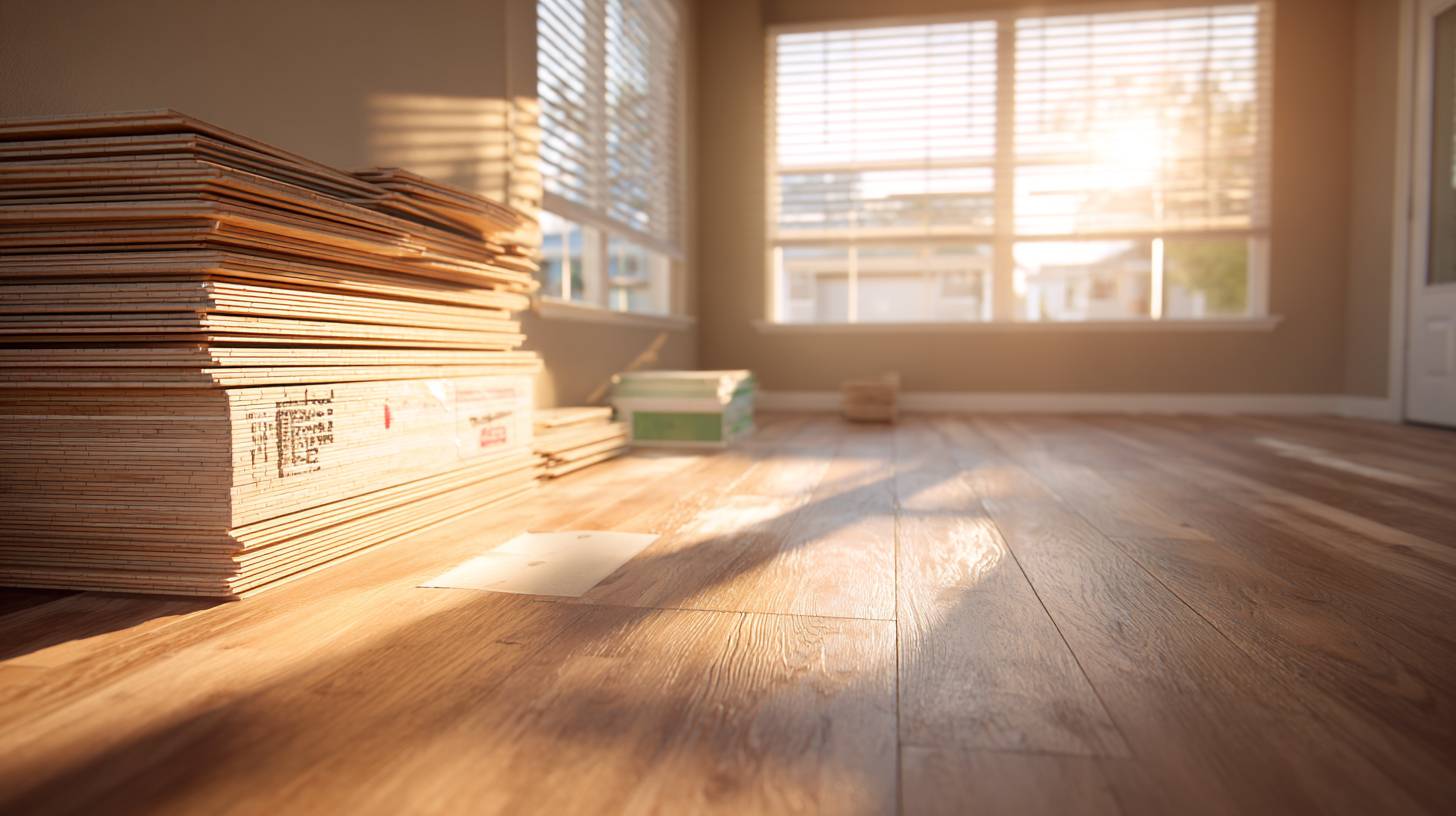Table of Contents [hide]
Comparing Orlando flooring contractors and not sure who to trust? Use this checklist to spot real pros, control moisture in Central Florida’s hot, humid climate, and get expert installation that delivers the dream floors you paid for.
Checklist For Hiring a Flooring Contractor in Orlando, FL
Orlando’s housing history matters. Mid-century ranches and block homes often had terrazzo or ceramic tile over a slab for durability and cooling. From the 1980s to 2000s, large tract homes built on slab brought carpet in bedrooms and tile in kitchens and baths.
Today, resilient plank and engineered wood are popular, but only when moisture is tested and managed. A contractor who knows this local context avoids costly callbacks.
1) Credentials & Reputation (Non-Negotiables)
Ask for a state license, proof of insurance, and a current Better Business Bureau record. Prefer professional flooring service providers with training in tile, wood, carpet, and polished concrete. Review recent residential and commercial flooring jobs, not just photos.
Cost context: solid, insured firms price labor realistically. Expect tile labor around $5 to $10/sq. ft., resilient plank $2.50 to $5, engineered wood $4 to $8, carpet $1.50 to $3, and polished concrete $3 to $6 (labor only), according to the Bureau of Labor Statistics. Materials vary by product choice.
What to Ask & Verify
Request three local references across tile floors, hardwood floors, and vinyl wood flooring. Confirm they handled condo/HOA approvals, high-rise logistics, and noise plans. Ask how they schedule around summer humidity and storms.
Older Orlando slabs may lack modern vapor barriers; pros should discuss testing and mitigation before recommending wood flooring.
2) Standards They Follow (Prove It)
Have them name standards: ASTM F710 (subfloor prep), ASTM F2170 (in-slab relative humidity), ANSI A108/A118 (tile), ANSI A326.3 (slip resistance), CRI 104/105 (carpet), and NWFA guidelines (wood).
Why does it matter? Hot, humid conditions and slab-on-grade construction demand documented testing. Skipping standards risks cupping, hollow tile, and adhesive failure.
3) Written, Detailed Proposal (Line Items That Must Appear)
Insist on demo/disposal, crack isolation or leveling, moisture and pH tests, underlayment or acoustic mats (for condos), trim/transition profiles, and cleanup. Require room-by-room quantities, a timeline, and change-order rules.
Typical totals (labor + materials):
- Tile: $9 to $18/sq. ft. depending on format and substrate prep.
- Resilient plank (waterproof): $4 to $9.
- Engineered wood: $8 to $15 (above grade, acclimated).
- Laminate: $4 to $8.
- Carpet: $3 to $7.
- Polished concrete: $5 to $10 (finish level and sealer drive price).
4) Moisture, Subfloor & Site Testing (Florida Must-Do)
Your bid should include F2170 slab testing, pH checks, and flatness to F710. Tile contractors should specify movement joints and membranes. Hardwood floors require acclimation and steady HVAC.
Additional costs: testing and mitigation typically $0.50 to $2/sq. ft.; crack isolation or self-leveling $1 to $4/sq. ft. Skipping these steps risks mold growth and warranty denial.
5) Materials & Design Guidance (Not Just a Sales Pitch)
Expect a clear flooring catalog and balanced advice on flooring materials and flooring options: bamboo flooring, engineered laminate, waterproof flooring, water-resistant engineered tile, custom carpets, stone floors, and sustainably sourced materials. Good pros tailor product choice to kids, pets, and cleaning habits.
Terrazzo and tile thrived here because they resist humidity and track-in sand. Today’s luxury tile and resilient systems deliver the same durability with warmer looks.
6) Installation Methods & Logistics (The “How” Matters)
Get the plan for staging, dust control (dustless refinishing for wood), saw locations, elevator pads, and daily cleanup.
For bathroom remodel tie-ins, confirm waterproofing to ANSI A118. If other trades are involved, coordinate drywall contractors and remodel contractors for clean transitions. Organized crews finish faster and cleaner, saving rework and homeowner stress.
7) Warranty, Maintenance & Aftercare (Avoid Surprise Costs)
You want written product and workmanship coverage. Clarify exclusions for water events and improper care. Ask about wood floor repair, recovery steps for a water-damaged hardwood floor, grout sealing, and re-seal schedules for polished coating or urethane coatings.
The benefit? Steady indoor humidity protects wood and adhesive systems, boosts comfort, and preserves resale value.
8) Pricing, Financing & Value Signals (Read Between the Lines)
Transparent free estimates should still itemize testing and prep. If you need financing options, compare the total cost, not just the monthly cost. Strategic cost-saving measures include using luxurious materials in feature zones and vinyl composition tiles in utility or high-traffic areas, never cutting moisture control.
9) Communication, Scheduling & Project Management (Service You Feel)
Look for customer service you can feel: one contact, proactive updates, and personalized service during the design phase. Expect a professional in-home flooring estimate, realistic lead times, and a calendar that includes acclimation, inspections, and punch lists.
10) Local Fluency Without Name-Dropping (What Pros Know)
Seasoned installers understand slab-on-grade realities, condo sound rules, and how sand and humidity affect finishes. They’ll advise when a floating staircase tread needs custom carpentry, when polished concrete beats plank in utility spaces, and how to phase work around rainy-season drying.
Find the Right Orlando Flooring Contractors, Fast
Hiring Orlando flooring contractors is simpler with a standards-first checklist and clear pricing ranges. Mr. Remodel connects you with vetted local installers who follow best practices, itemize testing and prep, and guide product choices that fit Orlando’s climate and your budget. Get a quote and move confidently toward new floors.





